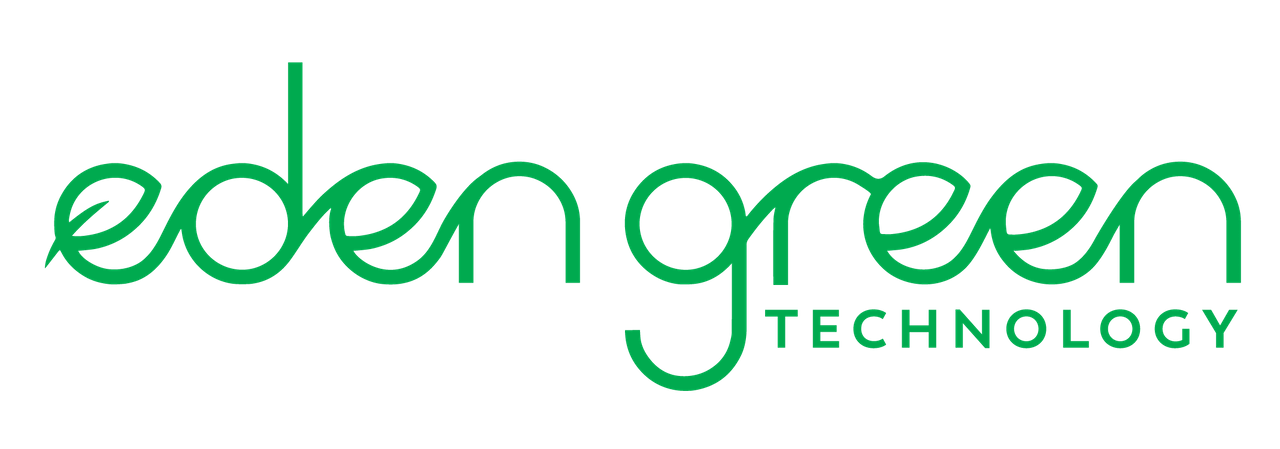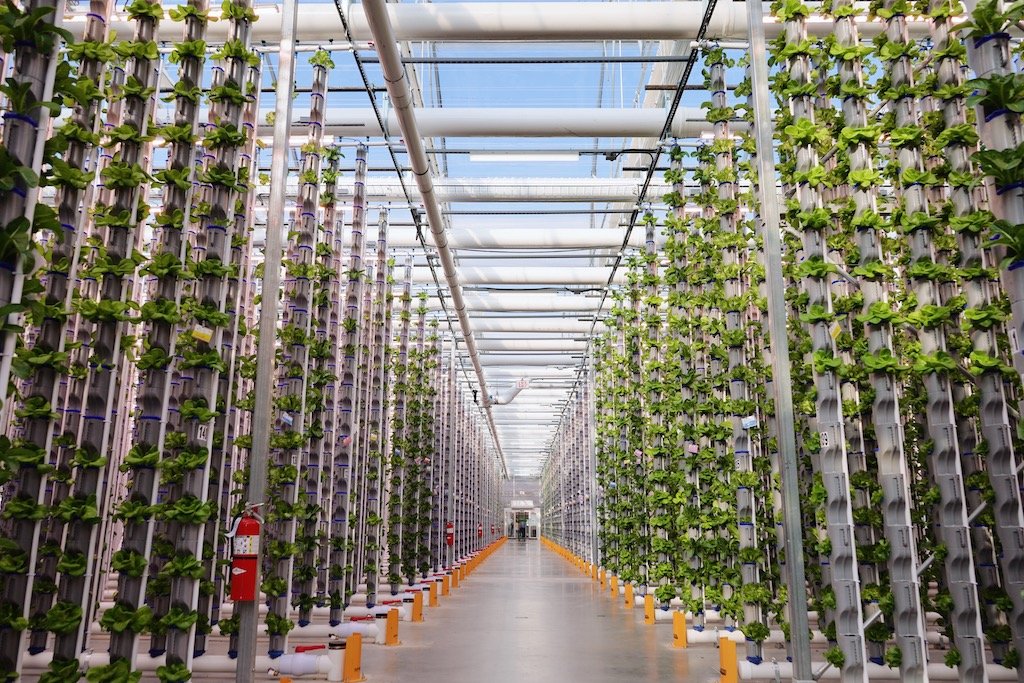Mars, Micro Farms & Microsoft: Exploring AgTech Trends Pt.2
Eden Green’s flagship facility in Cleburne, Texas.
In recent years, indoor farming has become increasingly popular due to a variety of technological advancements. Indoor farming refers to the practice of growing crops in an enclosed environment, typically using artificial lighting, climate control, and other advanced technologies to create optimal growing conditions. This method of farming has a number of advantages over traditional outdoor farming, including increased crop yields, reduced water usage, and the ability to grow crops year-round. It also allows for people to think bigger. Wether that is taking Mars or Mood mission into consideration or maximizing small, urban areas.
One of the key technological advancements that we would like to focus on today in indoor farming is the development of LED lighting. LED lights have several advantages over traditional lighting methods such as fluorescent or incandescent bulbs. LEDs are much more energy-efficient, producing more light per watt than other bulbs. They also emit much less heat, which reduces the need for cooling and ventilation systems. Additionally, LEDs can be programmed to emit specific wavelengths of light, which can be tailored to the needs of specific crops. For example, blue light can promote leaf growth, while red light can encourage flowering and fruiting. Eden Green has developed a proprietary lighting system that constantly measures the output of the sun and adjusts with supplemental lighting when needed. This system has allowed for complete uniformity from top to bottom and consistency during weather events.
Agricultural, and specifically indoor agriculture, is a hotbed for innovation and we at Eden Green are excited to be a part of it.
Here are 4 articles we found that outline some of the other technological advancements within the agricultural space.
Bloomberg | Ex-Starbucks Executive Aims to Build the Starbucks of Vertical Farming
From the Article:
“Vertical farming company Soli Organic Inc. recently received some attention in this interview with CEO Matt Ryan, formerly of Disney and Starbucks. Ryan said the company, which he joined last year following a stint as chief marketing officer of Starbucks, differentiates itself from competitors by growing crops in dirt instead of water. That helps it harvest tastier lettuce with better yields, he said. The ultimate goal of the company, which generates about $140 million in annual sales, is to reduce costs through scale and automation to sell organic vegetables at prices that match conventional field crops. It’s a similar strategy to how Starbucks brought premium coffee to the masses.”
Interstellar Lab food pods.
CNN | Food pods and vertical farming could help us grow crops on Mars
From the Article:
“Interstellar Lab is the pursuit of a child’s dream in the context of the climate crisis on Earth,” says CEO Barbara Belvisi. “At the youngest age, I dreamt of becoming a multi-planet species and to live under domes on other planets, surrounded by plants.”
Belvisi spent a year with engineers at NASA AMES Space Portal before launching Interstellar Lab in 2018. Its Nutritional Closed-Loop Eco-Unit System, or “NUCLEUS,” is a modular structure composed of nine cube capsules designed to provide a nutritious diet for four astronauts for the duration of a two-year mission. Belvisi says it is capable of producing fresh microgreens, vegetables, mushrooms, and even edible insects.”
TechBrew | Microsoft plants seeds in the agriculture industry
From the Article:
“Ranveer Chandra, managing director for research for industry and CTO of agri-food at Microsoft, told Tech Brew that Project FarmVibes is designed to “help a farmer augment their decisions” using data sources like heat maps, temperature and soil sensors, and satellite imagery.
“It’s for three key goals. The first is they can produce more, they can grow more food to help solve the world’s food problem. Second, to make them profitable; that is, they can reduce costs, they use less chemicals, they use less water. And the third is to help them practice sustainable agriculture,” Chandra said.”
Cheddar News | Vertical Farming Startup Babylon CEO Discusses Benefits of Indoor Farming Technology
Vertical farming startup Babylon Micro-Farms recently raised $8 million in a Serie A round. Alexander Oleson, CEO and co-founder of Babylon Micro-Farms, joined Cheddar News to explain his company's mission to help businesses and communities grow their own fresh produce in a sustainable manner.
Technological advancements have made indoor farming an increasingly viable and attractive option for farmers and consumers alike. LED lighting, hydroponics, climate control, and automation are just a few of the technologies that are driving the growth of indoor farming. With continued innovation and investment, indoor farming has the potential to revolutionize the way we produce and consume food, creating a more sustainable and resilient food system for the future.



